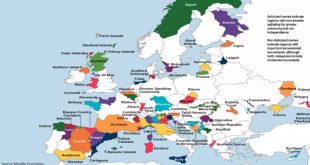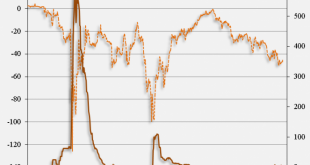Money – sound and unsound - Click to enlarge Interview with Rafi Farber: Part II of II Rafi Farber, pen name Austrolib, is the publisher of The End Game Investor, a daily market commentary written from an Austrian economics perspective focusing on precious metals, the Comex, and monetary analysis. His work is followed by leaders in the precious metals industry including Eric Sprott. He also writes a weekly column on the gaming industry at CalvinAyre. Contact him...
Read More »Gold Is Money – Everything Else Is Credit – J.P. Morgan – Part II
Interview with Rafi Farber: Part II of II Rafi Farber, pen name Austrolib, is the publisher of The End Game Investor, a daily market commentary written from an Austrian economics perspective focusing on precious metals, the Comex, and monetary analysis. His work is followed by leaders in the precious metals industry including Eric Sprott. He also writes a weekly column on the gaming industry at CalvinAyre. Contact him at [email protected] Claudio Grass (CG):...
Read More »We don’t have to kill the king, if we just can ignore the king
“The right of self-determination in regard to the question of membership in a state thus means: whenever the inhabitants of a particular territory, whether it be a single village, a whole district, or a series of adjacent districts, make it known, by a freely conducted plebiscite, that they no longer wish to remain united to the state to which they belong at the time, but wish either to form an independent state or to attach themselves to some other state, their...
Read More »We don’t have to kill the king, if we just can ignore the king
“The right of self-determination in regard to the question of membership in a state thus means: whenever the inhabitants of a particular territory, whether it be a single village, a whole district, or a series of adjacent districts, make it known, by a freely conducted plebiscite, that they no longer wish to remain united to the state to which they belong at the time, but wish either to form an independent state or to attach themselves to some other state, their wishes are to be...
Read More »Standing at a crossroads
“The more we gained knowledge of these new totalitarian systems of mass-rule, the more we realized not only their similarity of structure, but also the fact that we had to do with a type of dominance that had been known in earlier epochs. We discovered that what the ancients called “tyrannis,” or ‘cheirokratia,” what Sulla or the tyrants of the Italian Rennaissance had practised, and what finally alarmed the world in the French Revolution and under Napoleon, had surprisingly many...
Read More »The Importance of Economic Theory in Understanding Historical Data
It is a common belief that sound economics must be based on facts and not on theoretical reasoning as such. Some commentators are dismissive of economic analysis that is not derived from the true data, since it is not describing the facts of reality as depicted by historical data. The use of the free market economy framework, without the central bank and government intervention and with businesses as a foundation to derive valid conclusions, is dismissed as...
Read More »Why Friedman Is Wrong on the Business Cycle
According to an article in Bloomberg on November 5, 2019, Milton Friedman’s business cycle theory seems to be vindicated. According to Milton Friedman, strong recoveries are just natural after particularly deep recessions. Like a guitar string, the harder the string is plucked down, the faster it should come back up. Bigger recessions should lead to faster growth rates during the recoveries, to get the economy back to the pre-recession level of activity. In...
Read More »Why Small States Are Better
Andreas Marquart and Philipp Bagus (see their mises.org author pages here and here) were recently interviewed about their new book by the Austrian Economics Center. Unfortunately for English-language readers, the book is only available in German. Nevertheless, the interview offers some valuable insights. Mr. Marquart, Mr. Bagus, you have released your new book „Wir schaffen das – alleine!” (“We can do it – alone!”)...
Read More »What Will Trump Do About The Central-Bank Cartel?
Submitted by Thorstein Polleit via The Mises Institute, The US is by far the biggest economy in the world. Its financial markets — be it equity, bonds or derivatives markets — are the largest and most liquid. The Greenback is the most important transaction currency. Many currencies in the world — be it the euro, the Chinese renminbi, the British pound or the Swiss franc — have actually been built upon the US dollar. The...
Read More »Is the Economy a Machine?
Is the Economy a Machine? A Science Goes Astray Human beings have a strong tendency to look for patterns. The natural sciences have shown that the universe is governed by laws, the effects of which are observable and measurable in an objective manner. Mostly, anyway — there is, after all, the interesting fact that observers are influencing measurements at the quantum level by the act of observation. (For our lives in the “macro” world, however, this is not relevant. An engineer does not...
Read More » Swiss Economicblogs.org
Swiss Economicblogs.org







